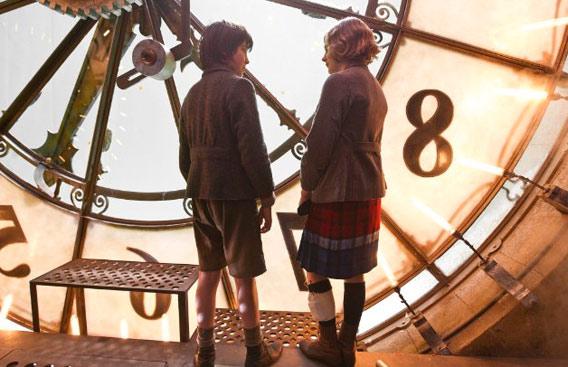Good morning, Dana Stevens!
It seems like only yesterday that we were getting a headache-y contact high from watching James Franco’s torpid emceeing of the 83rd Academy Awards. Time flies, huh? This morning, live from the hills of Beverly, Tom Sherak, who is the president of the Academy of Motion Picture Arts and Sciences, and actress Jennifer Lawrence, who was wearing an incomprehensible collection of ruffles, generously offered us the roster of nominees for the 84th, like P.R. girls dispensing swag at a gifting suite. Let us unwrap this present in the company of Dan Kois. Good morning, Dan! Welcome to our Oscargraphical open marriage.
The first thing that may puzzle our readers is that there are nine movies in contention for best picture. For six decades or so, we got by with five. In 2010 and 2011, in an attempt to goose ratings and pump buzz, the Academy gave us an even 10. Now the system is such that there can be anywhere between five and 10, depending on the nuances of a preferential-balloting scheme that I am happy to feign an understanding of. Martin Scorsese’s Hugo collected the most nominations overall (11), thus immediately becoming the foremost beneficiary of the backlash about to sting The Artist (10) on its cutesy flanks.
Everyone always talks about Hollywood escapism, but this collection of nominees is positively evasionist. The flights to the past are backed up like air traffic over LaGuardia. In addition to Hugo (preserved in the amber of the 1930s), The Artist (sealed in a Hoover-era vacuum), we here find War Horse (where Spielberg trots back to World War I) and Midnight in Paris (where Woody Allen enters a Lost Generation wormhole), not to mention The Help (which, really, I’d rather not have to mention).
What gives? Is there something about the present that the Academy would prefer not to face? Or am I just forcing a trend here? If it’s the latter, then please let me know how I might crowbar the other four nominees into it. (For the record, those films are the very decent Descendants; the fat, juicy Moneyball; the apparently-not-too-arty-for-a-nomination Tree of Life; and Extremely Loud and Incredibly Close, the title of which doubles as a description of the oratorical style of its producer, Scott Rudin, which may explain its appearance on this list.)
There were some mild-to-moderate surprises this morning. Despite the deep commitment he showed in J. Edgar—not least to sitting still in the make-up chair—Leonardo DiCaprio did not get a Best Actor nod. Nor did Shame’s Michael Fassbender. However, Demian Bichir, who was terrific as a Mexican gardener in L.A. in A Better Life, did. Hold this fact in mind while you wonder why Albert Brooks—once a favorite in the supporting actor category—did not get a nomination for going gangsta in Drive, that smooth Euro idea of an L.A. existentialism. Is there any, like, meaning in this? Do the inclusion and the omission say anything about the Academy’s idea of Los Angeles?
But perhaps these are the wrong questions. Dan, could you address the other matters hovering in the mediasphere this morning? These include, “Why no love for David Fincher?”; “Is Midnight in Paris the most polarizing Woody Allen movie since September?”; “Who should dress Jessica Chastain?”; and “Will Jason Segal perform ‘Man or Muppet’ live on stage at the Kodak?”
I want answers!
Troy
Click here to participate in Slate’s “Fix the Oscars” Hive. Share your ideas for how to improve the voting process and the telecast.
